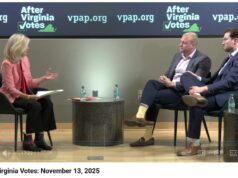A few days ago, I wrote here about how the media’s focus on who “won” some narrowly-decided primary between the two Democratic presidential candidates didn’t make sense. Here’s another idea that, though it has its supporters, makes no sense to me: the idea of “open” primaries. That is, the idea that people who are not affiliated with a given political party should be able to vote in the elections to determine whom that party should nominate for office.
Recently, the Bernie Sanders campaign has argued for open primaries, saying that many young people identify as “Independents,” and a closed primary deprives those young people of a voice.
That argument makes so sense to me. Of course, it is true that a closed primary does keep those who choose to be “Independents” from participating. But there is nothing that forces those people to remain independent of party affiliation– nothing that keeps them from registering as a member of the Party in which they wish to have a voice.
Why should anybody who isn’t part of a political party have any voice in deciding who will be the leaders to represent that party in the contest for political office? If someone doesn’t want to affiliate, then they can participate in the general election which is open to all registered voters, and choose then among the options provided by the parties. That is, they get to choose among the candidates put forward by those citizens who, unlike them, have come together to achieve some common goals through the organization of their political party.
I am not a member of the Rotary Club, or the Kiwanis, or Ruritan, or Lions, or any other organization of that kind. And I would not claim to have any right to tell them who their leaders should be. Why should a Democrat or Independent have the right to tell Republicans, for example, who have formed a party, who their leaders should be?
At the obvious outer edge of the question, there is the question of why someone who might wish to damage a political party should get the opportunity to do so, using a vote in an open primary to sabotage the party through its choice of candidates.
But even the non-affiliated voters mean no mischief, why should they have a say when they do not have enough commitment to that party to join?
It is said by some that a party is better off nominating people who appeal to those in the middle. That may well be so. That’s a reason that the members of the party can weigh. That’s the “winnability” issue that has often been one of the factors that people in a party take into consideration.
But how much weight to give to appealing to outsiders is for the members to decide. It is one thing for the party to consider the political advantages of appealing to unaffiliated voters, but something altogether different to let those voters come in and have a say about the party’s choice.
Constitutionally speaking, the issue might fall under the right of “association.” Part of that right, surely, is the right for people who choose to associate to make their own decision on what path to take as an organized group. If someone wants to join the association, fine– join in and you get a say.
But to barge in and wield the power of the vote in someone else’s association– does that not erode the rights of those who have exercised their freedom of association and formed a party?
In the years that I’ve been a voter, I have been a registered Democrat in Minnesota, California, Arizona, Maryland, and New Mexico. Now I live in Virginia, where voters register without party affiliation. In a state like Virginia, all primaries are inevitably “open”: anyone — a Democrat or Republican or anyone else — can vote in whatever primary they choose on the day of the election.
To my way of thinking, the arguments for closed primaries are also arguments for a state like Virginia to change its registration rules so that people can affiliate with a Party, and so that only those so affiliated can have a voice in choosing the party’s nominees.




![Saturday News: “Trump’s latest tariff TACO probably won’t make your life more affordable”; “The Epstein Email Cache: 2,300 Messages, Many of Which Mention Trump”; “[MTG] questions if Trump is still the ‘America First’ president”; “Jim Ryan tells all: ‘What did the Governor know, when did he know it?’”](https://bluevirginia.us/wp-content/uploads/2025/11/montage1115-238x178.jpg)







![Saturday News: “Trump’s latest tariff TACO probably won’t make your life more affordable”; “The Epstein Email Cache: 2,300 Messages, Many of Which Mention Trump”; “[MTG] questions if Trump is still the ‘America First’ president”; “Jim Ryan tells all: ‘What did the Governor know, when did he know it?’”](https://bluevirginia.us/wp-content/uploads/2025/11/montage1115-100x75.jpg)
